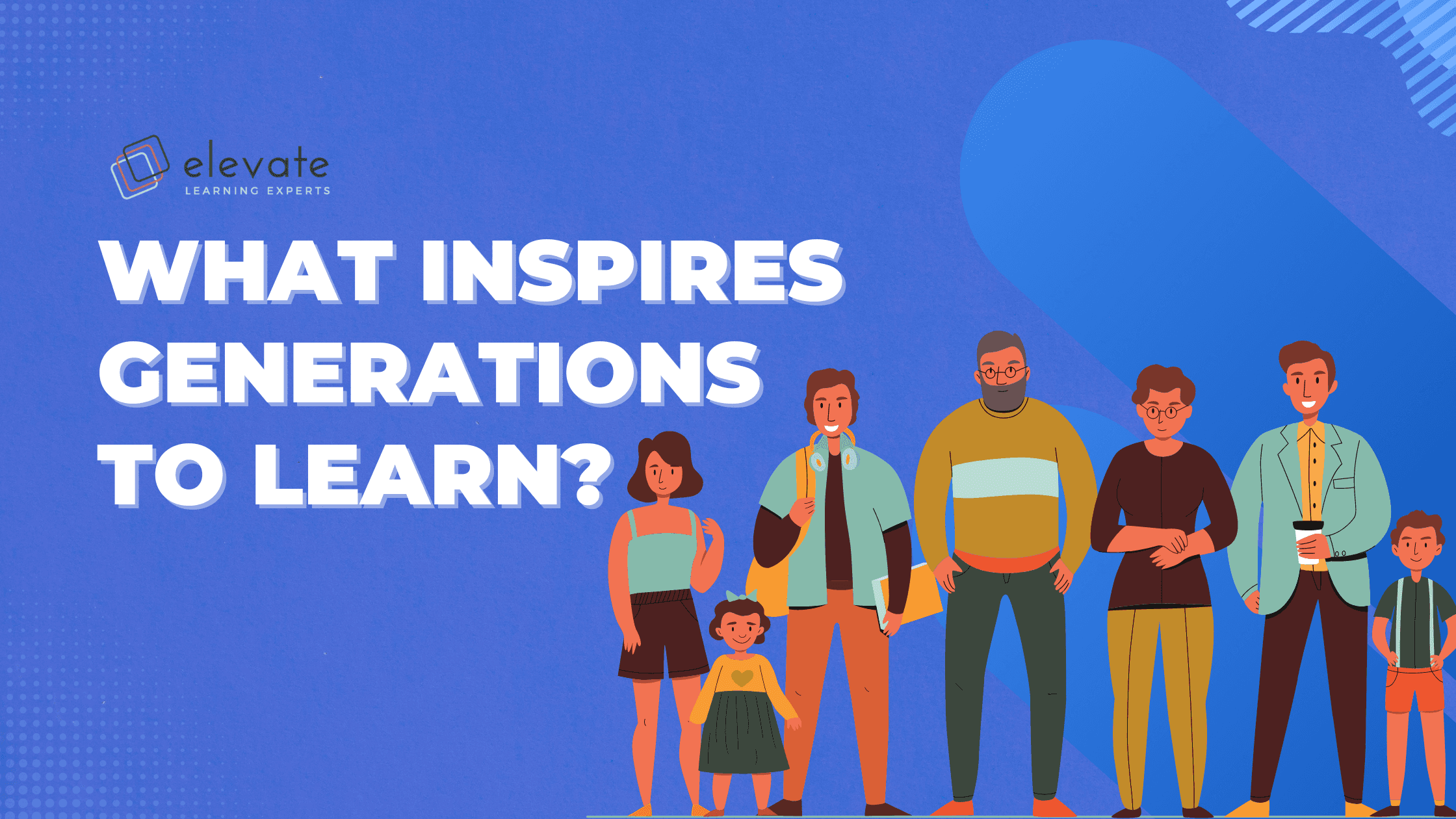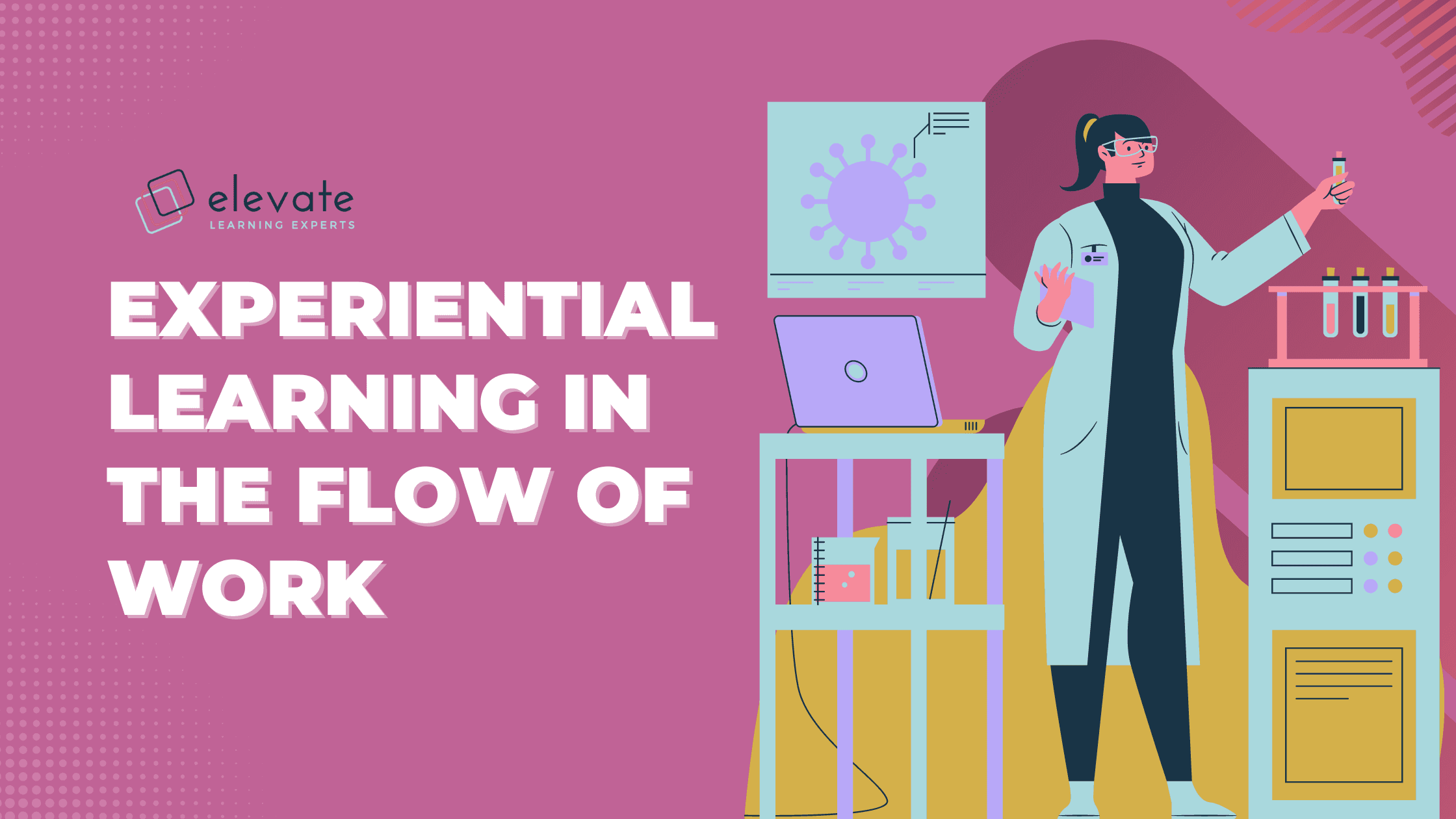When it comes to designing learning experiences, whether it’s an academy, online course or virtual workshop, it is imperative to consider learning experience design factors that will ensure learners are sufficiently engaged, motivated and encouraged to complete the training and practically apply and reflect on the new competencies they are expected to learn.
Here are 5 factors to consider in the design of your next learning experience that will help motivate your participants.
1) Relevance

Andragogy is the process of designing adult learning experiences, and a central tenet is that adult learners need to know why they should learn something and how it is relevant to them. This is important when creating an obligatory course for employees, such as compliance training, onboarding or values and ethics training. Ensuring that the topics covered and the instructional design is relevant and specific to the needs of the participants will maximise retention, encourage active learning and the adoption of skills beyond the completion of the course.
Participants should also be encouraged to build levels of autonomy when it comes to their learning experiences, as this builds interest and motivation. When learners believe they are in control of a learning experience that is relevant and personally applicable, they are more likely to be motivated to pursue extension activities, to persist through challenging or abstract concepts, or to grapple more intently with the subject matter.
Creating this sense of autonomy and relevance is best achieved through flexible or semi-structured learning design, such as providing access to content for participants to engage with at their own pace, and then allowing for discussion or engagement with others around the content for them to reflect on their own and others’ experiences. This gives them the sense that they own their learning process, working it into their day and reflecting and engaging with the content and others as they are able to.
2) Progress Opportunities

Growth, reward and opportunities, be they financial, career opportunities or the perception of improved status, are major motivating factors when it comes to adult learning. Many adults engage in learning opportunities only when they know that they will get something out of it, so ensuring that there is an incentive for your participants to engage with the content and achieve maximum learning success is important when designing and developing impactful learning experiences.
These incentives don’t have to necessarily be extrinsic or physical rewards, however, learning experience designers should make sure to outline why they will want to complete the training by explaining to the learner what they will gain, whether it’s earning continuous professional development points, developing a set of competencies aligned to a higher job grade or simply unlocking a badge, level or certificate.
Examples of progress opportunities could be badges they can add to their social media and professional profiles such as LinkedIn, public acknowledgement at work or online, or opportunities for one-on-ones with high profile individuals, coaches or mentors.
3) Authority

Reputable, experienced and knowledgable subject matter experts, programme managers or learning designers also help to create relevant and impactful learning experiences. If the participant feels that the source isn’t accomplished enough in their field, or doesn’t have the requisite experience or knowledge to be delivering the training, it will not be as successful in achieving the learning objectives that you design and aim to meet.
If your CEO teaches a course on leadership, your employees will be inspired to take that course because of proximity and relevancy. Your CEO is known to every employee and the CEO’s leadership advice is relevant to the employees’ career advancement. — 2020 LinkedIn Workplace Learning Report
Having a figure of authority as the face of your programme, for example, by talking through concepts, personal experiences or simply introducing the programme through video content, podcasts or as part of your course collateral, will assist with convincing adult learners that a course or training programme is worth their time and engagement.
Other ways of creating authority is through using case studies that tell the story of real or imagined relatable role models. When participants aspire to greater success, and the stories we tell incorporate examples of others who have achieved impact, then learning designers naturally create authority and an incentive for participants through the content they develop.
4) Interaction
Opportunities for social learning, collaboration and interaction with peers, coworkers and other learners’ also significantly aids in the learning process, particularly in times where we’re seeing an increasing number of companies shift to more permanent work-from-home policies.

The perception that learning online is an inherently lonely experience is only perpetuated by a poor understanding and application of how people learn and network with others. Social learning plays a critical role in defining the identity of a group of people, employees or teams and creating opportunities for participants to learn from each other, reflect on the content with others and share their personal experiences. A simple way to facilitate this is through discussion forums. Posting content-related prompts and actively encouraging participants to share their perspectives in a public forum not only reinforces content and concepts, but also creates a sense of community among otherwise disparate learners.
Not only will they solidify knowledge for themselves, but they are also exposed to the questions, perspectives and interpretation of their peers. They are able to share additional resources or content, effectively co-creating the learning experience and curriculum. Because learning is most impactful when it’s experiential, participants should be encouraged to become active members of the learning experience, for their own success in learning as well as the success of the entire class, cohort or team. In this way, an interactive, learning community enables experiential learning, irrespective of whether it’s delivered virtually or otherwise.
5) Investigation

Stemming from both the idea of autonomy and relevance as well as experiential learning, giving the learners an opportunity to discover the content themselves will result in maximum retention. Simply ‘dumping’ text-heavy documents onto the participant and expecting them to imbibe it is both impractical and unrealistic. If learning experience designers aim to create impactful and effective learning experiences, they need to continuously engage and prompt the learner to participate in the process.
Though active investigative, learners are asked to solve problems or grapple with challenges, to pause and reflect on both the content and their own experiences, and encouraged to practically apply the concepts or tools they’ve been exposed to. In this way, adult learners are not passive during the learning experience but are engaged throughout the process, again, co-creating their own experience.
When we place emphasis on learning as a means of levelling up, we tap into humans’ natural drive to improve. The process of effective and impactful learning experience design ensures that learner motivation, audience needs, structure and content all work in harmony to ensure successful learning and return on investment. By including a range of learning design factors that intentionally seek to motivate learners, you’ll be more like to achieve success.

